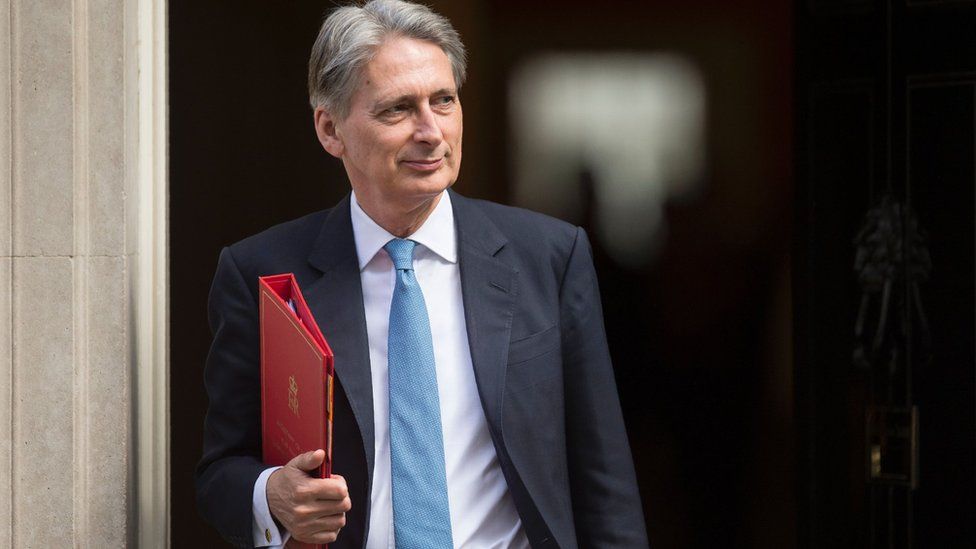Philip Hammond appointed chancellor
- Published

Former Foreign Secretary Philip Hammond has been appointed as Chancellor of the Exchequer.
He takes over from George Osborne, who has resigned from the government.
Having been in Parliament since 1997, Mr Hammond is one of the Conservatives' most experienced politicians and it is said that he has long wanted the role of chancellor.
Before becoming a politician, Mr Hammond had a career in business - in the medical equipment industry.
The Financial Times reports that some Tory MPs have dubbed him "spreadsheet Phil" for his dry manner.
Mr Hammond studied philosophy, politics and economics at Oxford University and is seen as a "fiscal hawk", which means he believes in prudent public finances.
However, he may be prevented from cutting spending, or raising taxes too aggressively by Prime Minister Theresa May.
In a speech launching her bid to become prime minister she had said "we should no longer seek to reach a budget surplus by the end of the Parliament".
Analysis
By Kamal Ahmed, BBC economics editor
Speaking to a senior figure in the banking world this morning, he had nothing but praise for Philip Hammond, the new Chancellor of the Exchequer.
He told me when Mr Hammond was shadow chief secretary to the Treasury, the MP for Runnymede and Weybridge did "a lot of the heavy lifting" when it came to working out the Conservative plan for tackling the UK's economic challenges.
Cut the deficit and shrink public sector expenditure was the route alighted upon.
At the time a fiscal hawk of the George Osborne variety - and a big fan of the European Union single market to boot - Mr Hammond is going to have to find a new tone.
On Twitter, Mr Osborne, who was chancellor throughout Mr Cameron's tenure, said it had been a "privilege", adding: "Others will judge - I hope I've left the economy in a better state than I found it."
He had been in charge of the nation's finances since 2010.
Mr Osborne inherited an economy that had suffered its worst recession in decades and had seen a sharp rise in government borrowing.
He staked his reputation on getting the public finances back into surplus by 2020 by cutting government spending and raising taxes.
But that 2020 target was abandoned last week following the UK's vote to leave the European Union.
- Published14 July 2016
- Published13 July 2016